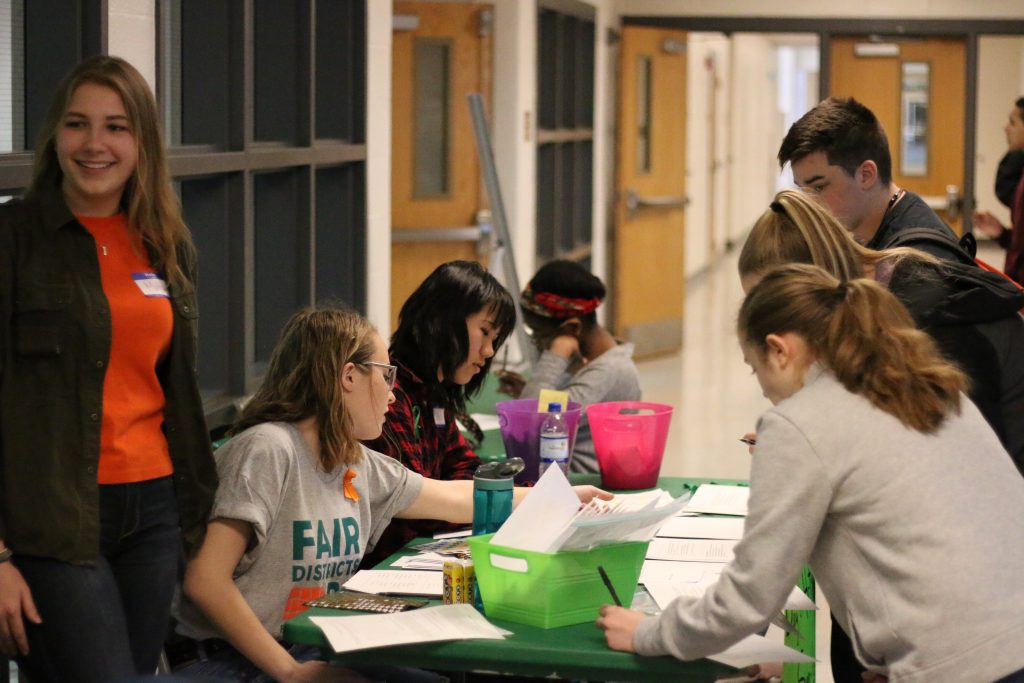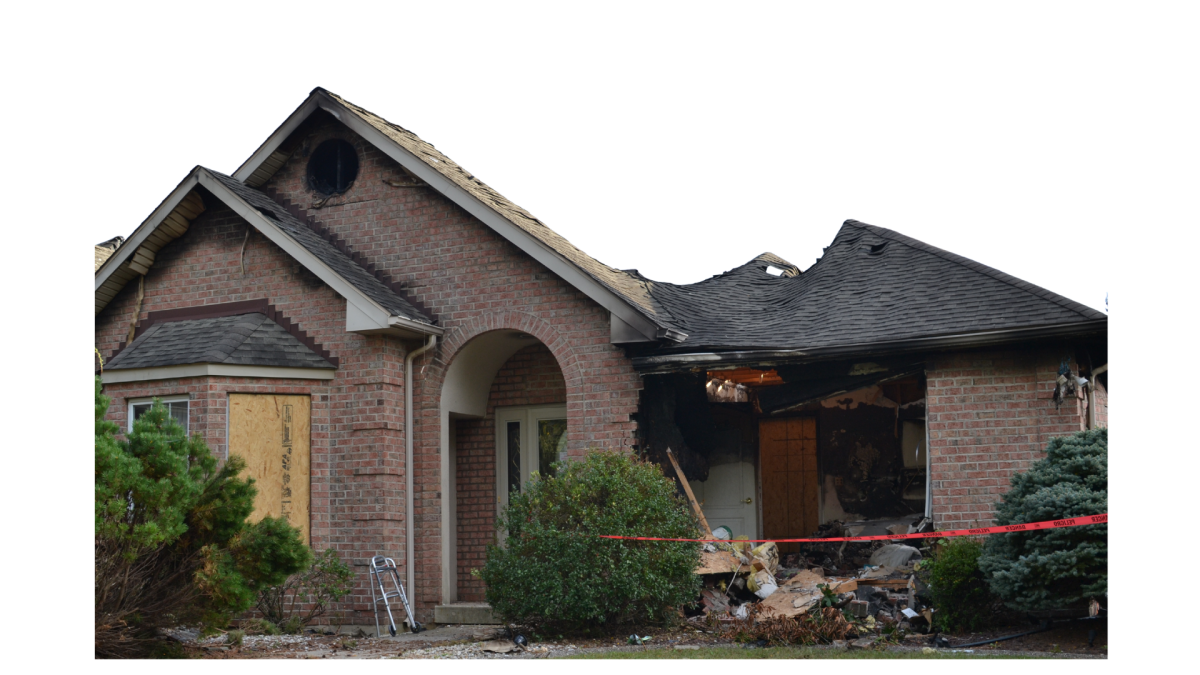On April 20, Emmaus High School’s EHS Activism group hosted a day of discussion and advocacy, centering on activism, becoming more politically involved, and putting an end to gun violence.
The daylong event featured visits from local politicians as well as student speakers, voter registration, and letter writing to legislators. Approximately 200 students participated throughout the day.
April 20 marked the 19th anniversary of the mass shooting at Columbine High School. Because of this, a group of students across the country organized National School Walkout, which was largely in response to what they call “inaction seen in Congress.” Part of their purpose was to protest violence as well as strive to make a change in the government’s policies.
The National School Walkout occured a little over one month after another walkout in reaction to the school shooting at Marjory Stoneman Douglas High School. It also was one month after students across the nation marched in Washington D.C. to protest gun violence and demand change.
Many EHS students participated in the walkout on March 14; however, some backlash came from the community. Due to the disapproval coupled with other negative connotations associated with April 20, Emmaus students, along with Principal Dr. Kate Kieres, decided that a walkout may not be the best option for the students.
“I didn’t hear much from too many people who wanted the walkout,” Kieres said. “We talked to students initially about how the day is problematic because of other associations with this day like Hitler’s birthday…it’s national marijuana smoker day, so we really didn’t feel [that a walkout would be the best option].”
Instead, EHS Activism students, whom Kieres advises, decided that a day of action may be more effective. Many events occured throughout the day, such as letter writing stations, voter registration, student speakers, and state Sen. Pat Browne, R-Lehigh, coming in to answer questions.
Senior Grace Lewis was the head student coordinator for the events, most of which she oversaw throughout the day. She also runs the EHS Activism Remind101 and consistently updates the organization’s Google Classroom account.
Lewis prefers the idea of a day of activism as opposed to a walkout because she believes it could help cause actual change.
“We wanted to take the momentum from the walkout and turn it into actual stuff getting done,” Lewis said. “I know that there are other walkouts happening around the world today, but as you may know about some of the backlash from certain people on the school board, we didn’t want the administration to get in trouble and we didn’t want any students to get in trouble for doing that sort of thing, so we wanted to set [the day of activism] up instead as an alternative.”
To Lewis, voter registration was the most exciting part of the day. Many students who will be 18 years old by the November election stopped by the multimedia room to register, totaling 100 new voters by the end of the day.
“There are a lot of people in this school that are old enough to vote, and voting is how we get things done,” Lewis said. “The best way to have people listen to you in government is to say ‘Hello, I’m 17, I’ll be voting in the next election, and this is what I want you to do for me to vote for you.’”
Junior Aidan Levinson also believes in the effect voter registration has on the community. He played a major role in running this portion of the event. Additionally, Levinson helped coordinate the attendance of Sen. Browne, as well as people who work in the offices of other government officials.
“[Voter registration] is cool, it kind of give[s] people a voice to elect their representatives so they can actually make change,” Levinson said. “There is a lot of people that aren’t registered to vote, and there is a lot of people that don’t know there is an election every year, so that’s what we’re doing here today.”
While Sen. Browne fielded questions from students during fourth period, voter registration and letter writing took place throughout the day.
Students wrote 83 letters throughout the day to be sent to government officials, many of them heading to the office of Republican U.S. Senator Pat Toomey. EHS Activism set up letter writing stations in the multimedia room in the morning and afternoon, as well as near the cafeteria during lunch periods.
Junior Kristin Ortiz wrote a letter to Sen. Toomey in hopes of having her voice heard.
“My major focus in my letter is gun violence and gun control,” Ortiz said. “This is important to me because I think this is a major topic and problem in our society today, and now that there’s a spotlight on teens, I think that we need to use our voices as much as possible right now and get all of our opinions heard.”
To encourage students to write letters, register to vote, or listen to student speakers, representatives of EHS Activism went to study halls to ask for participation and to hand out passes to the multimedia room.
At the same time, various students spoke to the crowds about their views on gun control and safety in schools. One such student is junior Maya Kita, who was also very involved in the events. She and another student, junior Analise Edwards, run the EHS Activism Twitter account.
“A lot of us have been coming to the [EHS Activism] meetings and we’ve just been giving our own ideas on what can happen here and how we can get the word out,” Kita said. “I’ve always been very politically active and I’ve been very vocal about my opinions since a young age, especially in the range of politics. When the shooting happened at Marjory Stoneman Douglas High School, I knew that this was a time when I could really voice my opinion and be heard.”
During her speech, Kita highlighted “the importance of speaking up for what you believe in.”
“We may just be high school students, many of us unable to vote, but we are still here today to raise our voices both individually and as a group to show that our generation has something to say and that we have the means to make our message heard,” she said.
Sophomore Stefania Schoen and juniors Elijah Zukowski and Ben Lewis were among the other speakers at the event.
Every student speaker took a different approach to their time with the microphone. Zukowski decided to take time to reflect on a visit from former skinhead Frank Meeink that had happened two days prior to the day of activism. Zukowski repeated his message that kindness, not hate, will cause productivity.
Ben Lewis gave a unique perspective to the event, as he has been working closely with administrators on how to make EHS a safer environment. He referenced how by becoming safer in school, students may actually become uncomfortable. For example, in the morning students only have two options of where to enter the building
“Everyone wants to be safe, it’s undeniable — [it’s] human nature, everyone wants to be safe, they want to be comfortable, and everybody wants to have a good time,” Ben Lewis said. “I think that in order to achieve that, the administration is going to have to do some things that may be weird for us.”
Although Lewis may not feel completely safe all the time in school, he has a strategy to calm down when he feels afraid.
“It’s a strategy I learned to calm myself down very often, and that is the ‘Invisible Man,’” he said. “And basically if I am ever freaked out about something… I think to myself ‘ah, now the invisible man behind me will protect me’… Our administration is a true ‘Invisible Man’ for us.”
Schoen’s speech focused more on action and the idea that people must come together in order for change to happen.
“[Making change] shouldn’t be on me, it shouldn’t be on just a few people either,” Schoen said. “It should be on every single one of us.”
Like Schoen, Sen. Browne highlighted the idea that everyone must come together in order to reach a solution or even pass legislation about gun violence.
Prior to the the day’s events, students submitted their questions for Browne which they then asked him at the. Students questions revolved around ways to get involved.
No matter the question, Browne often came back to the idea that each side of the gun control debate needs to shift their stance slightly in order to find a working compromise.
“People have to be willing to sit in a room with people that disagree with them… and have a conversation,” Browne said. “What I want is people on both sides of this debate to come together.”
Browne also highlighted the importance of telling one’s stories to a politician in person. as that is how the message is the most effective.
After Browne left, No Place for Hate took the floor. NPFH members asked the crowded audience of the multimedia room about their reactions to Frank Meeink’s talk with the school. While the reactions were mixed, most of the students had positive feedback to the presentation and believed it would cause change.
Taking a stance opposing the majority, senior Ethan Lynch expressed his fear that Meeink still showed signs of prejudice, even though he claimed to have been reformed.
“[Frank Meeink was] verbally segregating people when he was discussing how he was ‘better and faster than all the black kids,” Lynch said. “I do not necessarily believe that he has overcome his prejudice towards others.’
NPFH advisor, Stephanie Larkin, was quick to thank him for that comment, but also bring up the fact that everyone is prejudiced in some way, which Lynch agreed with.
Overall, Kieres found the day’s events to be successful.
“I certainly hope that the result is that the huge number of really great kids that we have who are passionate and active on a whole range of issues, get the attention that they deserve,” Kieres said. “And I hope that the result is that people are a little bit more willing to student voices. Because I think they can learn a lot.”
Additional reporting by Tabitha Nowak, Chloe Gerhard, and Kristen Heilenman



